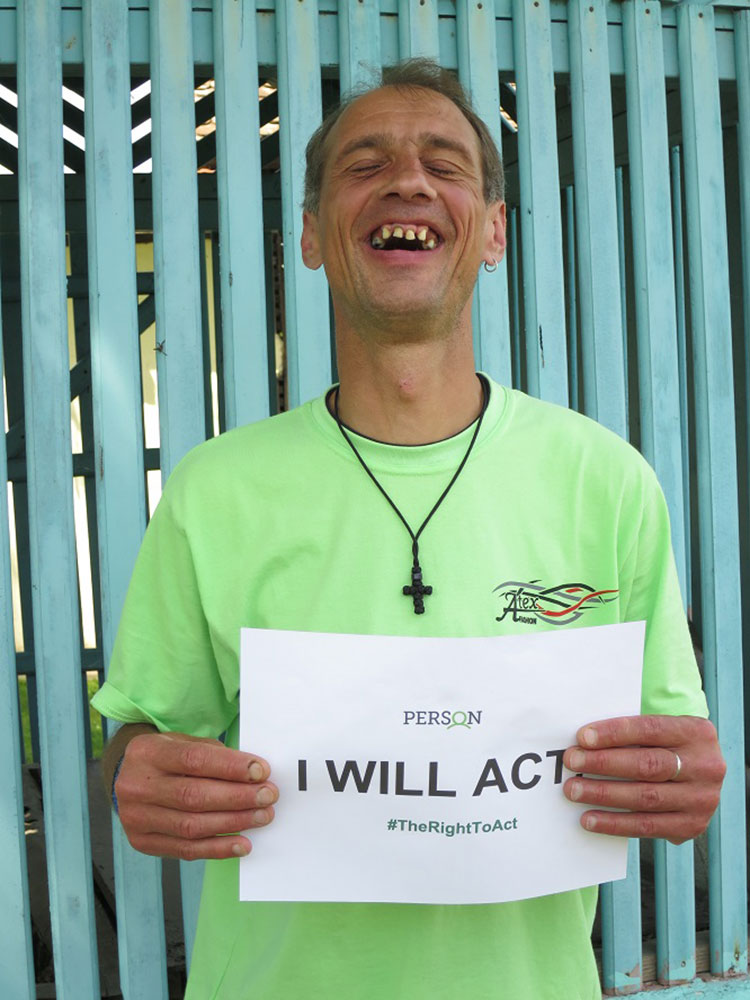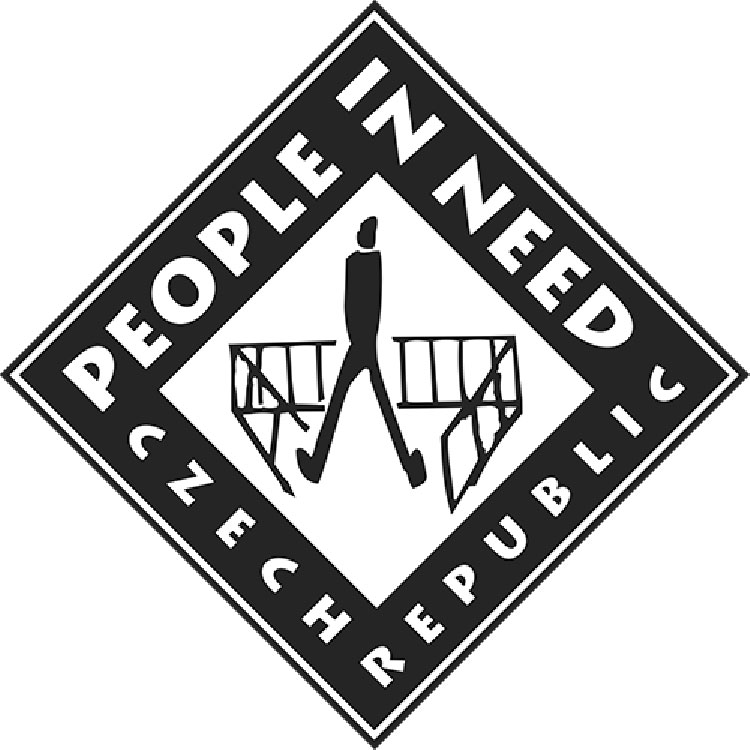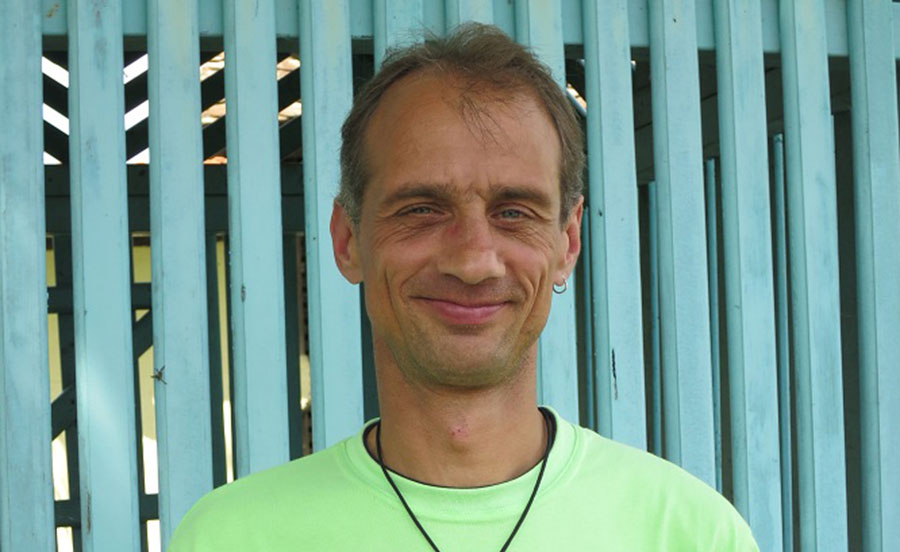“I spent 21 years without any rights in an institution. Now I can work and start my life”, says Nebojsa
Today is a special day for him. “I’m going to sign up to the Employment service. And I want to go alone. Now, I guess, I do not need an escort! ” says Nebojša Martinović, who a few days ago turned 43, and now for the first time in his life, he is making a step towards the realization of his basic human rights – to work, be employed and earn own money.
Nebojša is the client of residential institution for adults and older “Gvozden Jovančićević” in Veliki Popovac, for 21 years. This institution takes care of people with intellectual disabilities, and according the recent practice of Serbian courts, the clients in institutions of social protection in most of the cases were totally and permanently deprived from legal capacity.
When someone is deprived of legal capacity that means that he or she can not choose where and with whom to live, cannot sign any contract, may not dispose of its assets, cannot buy goods of larger value, he or she has no right to vote, can’t decide where and how she or he will be medically treated, cannot marry, cannot volunteer. A person who is deprived of legal capacity simply cannot make decisions about its own life. From a legal point of view, such a person has rights as a 14 years old child, and instead of her, decisions are made by a guardian.
 I want to responsible for my own actions
I want to responsible for my own actions
”It’s important for me to have that ability. I want to be responsible for my own actions. I’m able to think with my head. Also, I want to work, and I see that it’s hard to get a job, but even if someone wants to give me the job, he would not take a risk because I don’t have that capacity,” Nebojša explains.
Whether someone will be deprived of legal capacity, decides the court when the findings of medical experts established that a person is not capable of rational decision-making, mainly due to limited mental or intellectual abilities. In addition to the complete deprivation, there is another option – partial deprivation, which means that some people in certain areas of life can make their own choices, while for others decides the guardian. However, research on procedures of the courts in Serbia shows that the judges in 87% of cases, has never even talked with a person about whose legal capacity is deciding. However, the situation is improving and Nebojša’s case proves it.
“It was strange, I never went to the court before. It was my first time. The man asked me, the judge, I told him that I would love to, but I do not know if there is a possibility. And when it was all over I was, as they say, joyful,” says Nebojša Martinović, who was in March 2015 recognized as person with partial legal capacity by the decision of the Court in Petrovac na Mlavi.
And suddenly things started to change. “When I want to buy a laptop, mobile phone, radio device, I don’t like to have a companion who intervenes for me. I know to get along. And while I lived in the Institution, workers have confidence in me. I worked as a doorman in the morning, I was delivering mail, I played the music through the PA system of the Institution. I love those technology devices, I love to have it. Right now I plan to buy a laptop at Zoka’s shop,” says Nebojša.
And what about reaction of the locals? “Nebojša is very likable man. He has such a friendly attitude towards people. He is always ready to crack a joke or share some anecdote. Since Nebojša is the client of the Institution, then purchase goes through an assignee, and we allow him to pay in as much instalments as it is possible. He is our customer for few years already and we always try to provide him best service, well as good as we are providing to all our customers,” says Zoran Vladisavljević Zoka, the owner of the shop for electrical appliances in Petrovac na Mlavi.
Change came with People in Need project

Now, with partial deprivation, Nebojša is able to shop by himself. He will now be registered in Employment service and he hopes to find job as soon as possible and then buy a laptop. He says all of this is a huge change in his life, and it all started in June last year when the Institution Veliki Popovac decided to enter the EU funded project related to deinstitutionalization and social inclusion of people with intellectual disabilities, together with Czech non-governmental organization People in Need.
The project was called “Getting a life” and within it, Nebojša moved from his room in Institution to the so-called Halfway house, which serves as a preparation for clients who will move from their life in institution and live in the community. The idea is that people with intellectual disabilities living in institutions move into houses or flats where, with professional support of assistants, can have much more independence in making decisions and organizing their own lives.
The “Getting a life” is part of a larger project “Open Arms” which is supported by the Ministry of Labor, Veteran and Social Affairs and the Ministry of Health of the Republic of Serbia, and financed by the European Union. So Nebojša, along with nineteen other people, now have a chance to live with all the rights and obligations that ordinary life in a community entails.
My parents do not want to hear about me
“I am happy in my new home. But I would not even be here if there was someone who could took care of me back then. I lived in Belgrade. I just lived with my grandmother, she was my guardian. My mother does not recognize me as her child. She never wanted to. I have not heard about her for a long time, and it better not hear anything. She even turned my sister against me, so she never comes to see me,” says Nebojša. “The last thing I know about my father is that he asked my Center for Social Welfare: how that dog had not died yet? My father and mother think that I am a bastard. I guess that means you’re rejected by people, that everyone ignores you. But I think that I have prospered a lot in my life,” he adds.
Fortunately significant change came to his life. “I thought that if I live in the institution I have no rights. That why this project means a lot to me. I learned much and I can say that I’m smarter. Before this I did not even know about that legal capacity, I did not know, for example, that because of it I can’t work. My life is bitter and good, but I ran away more to the good side. Well, maybe someone will read what I’m saying, and give me the chance to work.”
Autor: Jasna Glišić, People in need




